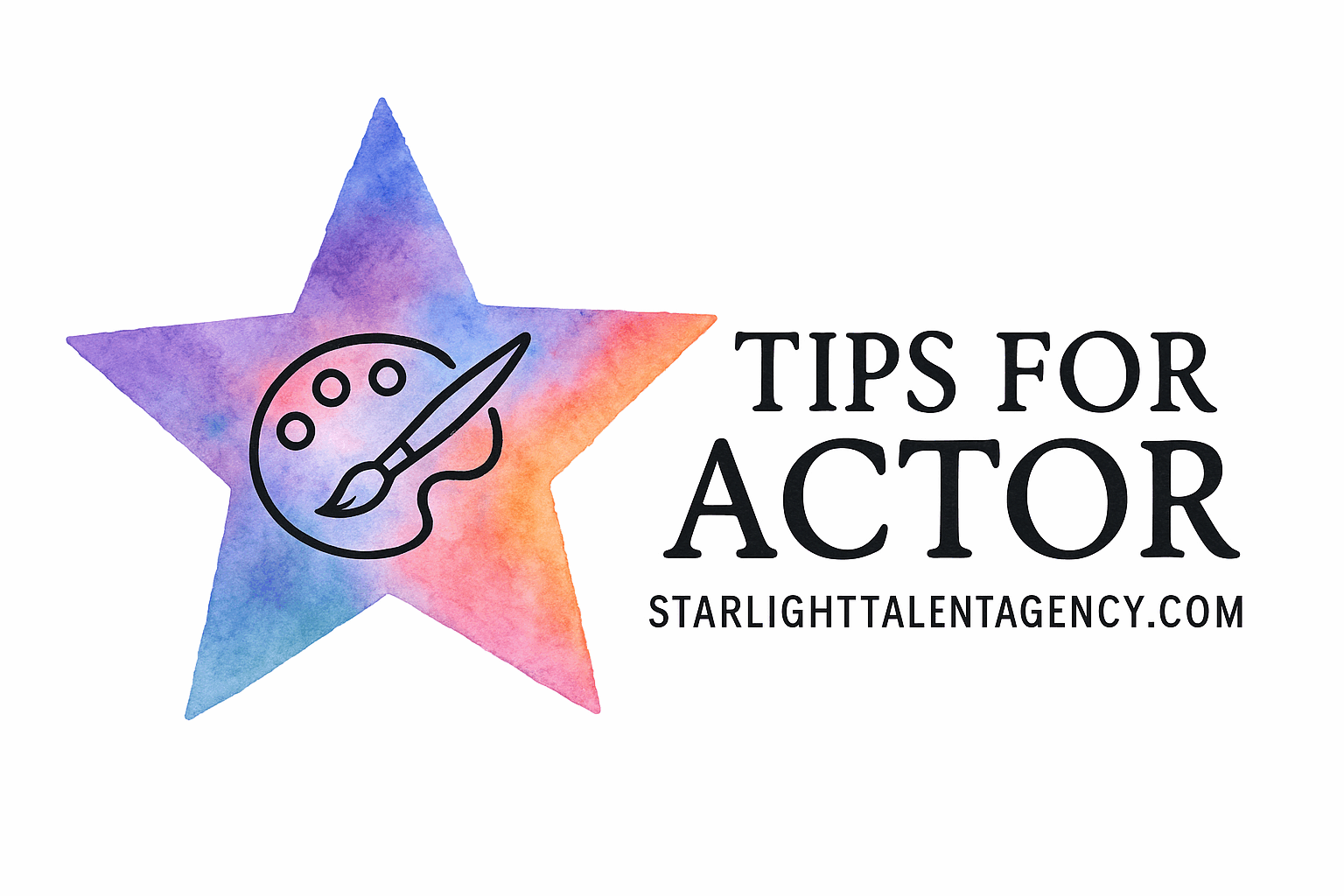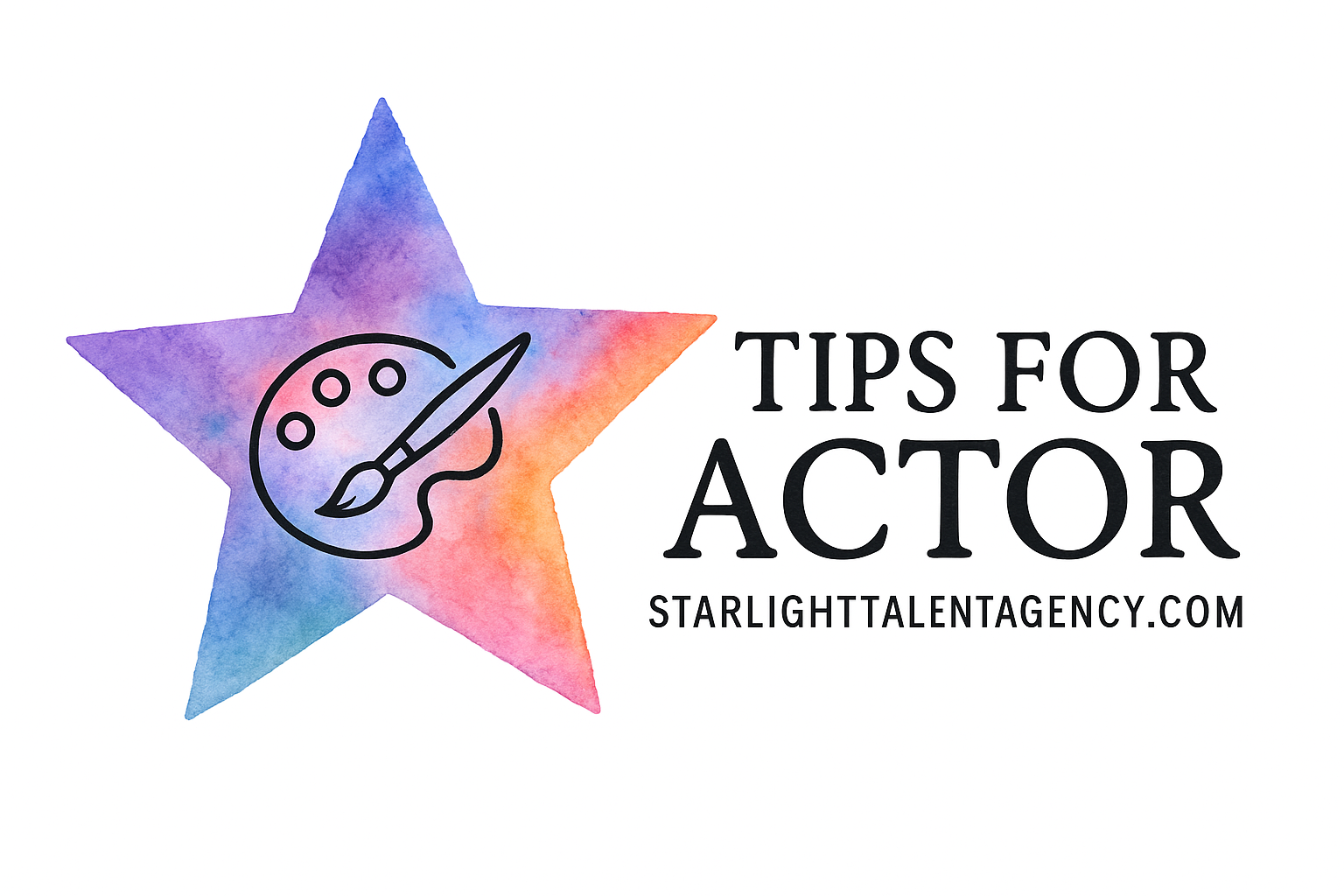Introduction
Every actor knows that auditions are make-or-break moments. You’ve rehearsed your lines, perfected your monologue, and maybe even practiced your smile in the mirror—but have you really warmed up? Warm-ups aren’t just for dancers or athletes; they’re a crucial part of preparing your body, voice, and mind for a standout audition.
In this guide, we’ll cover 8 coaching tips for actor warm-ups before auditions that can transform your performance. These techniques are used by professional coaches at places like Starlight Talent Agency, helping actors step into every room calm, focused, and ready to shine.
Why Warm-Ups Matter for Actors
The Science Behind Warm-Ups
Before diving into the tips, let’s talk science. Warming up activates blood flow, relaxes muscles, and prepares your nervous system. This not only helps prevent physical stiffness but also allows you to respond more naturally during your performance.
Think of your body and voice as instruments—warm-ups tune them to perfection.
How Warm-Ups Improve Confidence and Performance
Confidence is chemistry. When your body is loose, your breathing steady, and your mind clear, you perform better. Simple warm-ups trigger endorphins, reduce stress hormones, and signal to your brain that you’re in control. That means less shaking hands, fewer forgotten lines, and more charisma.
Tip 1: Start with Gentle Physical Warm-Ups
Stretching and Movement to Release Tension
Start by rolling your shoulders, loosening your neck, and gently shaking out your limbs. It’s about freeing your body from the everyday tension that can block your emotional flow. Actors who skip this step often appear stiff or disconnected during auditions.
Try this: roll your head slowly side to side, stretch your arms upward, and take three deep breaths as you exhale tension away.
Building Body Awareness Before You Perform
Body awareness is everything. Imagine stepping into your character’s shoes—literally and figuratively. Feel how they might move. Are they graceful? Rigid? Heavy-footed? Use your warm-up to connect with those physical choices.

Tip 2: Use Breathing Techniques to Center Yourself
Deep Breathing for Emotional Grounding
Breath is the bridge between your body and your emotions. Before auditions, try a simple box-breathing exercise: inhale for four counts, hold for four, exhale for four, hold again for four. This helps center your energy and calms audition nerves.
Breath Control for Vocal Stability
Controlled breathing gives you the vocal support needed for strong projection. You don’t want your voice to waver mid-line because of anxiety. Breathing from your diaphragm rather than your chest creates depth and power in your delivery.
Tip 3: Warm Up Your Voice Effectively
Simple Vocal Exercises for Clarity
Your voice is your signature tool. Begin with humming, lip trills, and tongue twisters to activate your vocal cords. Try saying “Unique New York” or “Red leather, yellow leather” slowly, then speed it up.
Resonance and Projection Practice
Stand tall, place your hand on your chest, and hum until you feel vibrations. That resonance adds richness to your tone. Then project across the room—not by shouting, but by breathing deeply and sending your voice forward with intention.
Tip 4: Engage in Mental Focus Exercises
Visualization Techniques for Calmness
Before walking into an audition, close your eyes and visualize success. Imagine the casting director smiling, your lines flowing effortlessly, and the room filled with positive energy. Visualization primes your brain for confidence.
Mindset Shifts for Audition Readiness
Instead of thinking, “I hope they like me,” reframe it to, “I’m excited to share my art.” That simple mental shift changes your body language and presence instantly.
Tip 5: Do Character-Based Improvisations
Connecting with the Role Through Play
Improv is the secret weapon of great actors. Spend a few minutes embodying your character in an imaginary setting. What do they do when no one’s watching? How do they walk, react, or laugh?
Using Improv to Unlock Authentic Emotions
Improvisation loosens up your instincts and helps you respond naturally to direction. It’s not about being perfect—it’s about being present.
Tip 6: Practice Emotional Recall Warm-Ups
How to Access Real Emotions Safely
Emotional recall means drawing from real experiences to connect with a scene’s emotion. But remember: never force it. Instead, recall memories gently and let the feelings flow naturally.
Emotional Range and Control During Auditions
The goal isn’t to cry on cue—it’s to be emotionally available. A good warm-up helps you tap into emotions without being overwhelmed by them.
Tip 7: Prepare with Speech and Accent Drills
Perfecting Your Diction and Delivery
Mumbling or unclear speech can ruin a great performance. Practice articulation drills daily. Say “To sit in solemn silence on a dull dark dock” slowly, then faster, focusing on clarity.
Strengthening Accent Accuracy and Flexibility
If your role requires an accent, practice subtlety. Avoid exaggeration. Listen to native speakers, record yourself, and adjust your tone. Sites like Starlight Talent Agency’s Accent Training Resources can help polish your skills.
Tip 8: Finish with Confidence Boosters
Positive Affirmations and Mental Anchors
Before walking into the audition, remind yourself: “I am prepared. I am capable. I am ready.” Simple affirmations can override anxiety and set a confident tone.
Walking into the Room with Presence
Your entrance says as much as your monologue. Stand tall, make eye contact, and breathe. Confidence isn’t arrogance—it’s the calm assurance that you belong there.
Bonus: The Ideal Pre-Audition Routine
Combine all eight tips into one fluid routine:
- Stretch your body.
- Practice deep breathing.
- Warm up your voice.
- Visualize success.
- Do a quick improv.
- Tap into emotion.
- Run accent drills.
- Finish with affirmations.
This sequence keeps you grounded, expressive, and audition-ready.
Common Mistakes to Avoid During Warm-Ups
- Rushing through exercises – Warm-ups need patience.
- Skipping voice work – Even short auditions need vocal readiness.
- Overdoing emotional recall – Stay balanced.
- Ignoring body posture – Slouching drains presence.
Conclusion
Auditions can be nerve-wracking, but with the right warm-up techniques, you can enter any room feeling prepared and powerful. The 8 coaching tips for actor warm-ups before auditions aren’t just exercises—they’re rituals of readiness.
Remember, your warm-up isn’t about perfection; it’s about preparation. So, next time you walk into that casting room, take a deep breath, ground yourself, and own your moment.
FAQs
1. How long should an actor’s warm-up last before an audition?
Ideally, 15–30 minutes is perfect to prepare your body, voice, and mind.
2. Can I warm up in the audition waiting area?
Absolutely! Subtle breathing or humming exercises work perfectly in public spaces.
3. What’s the most important warm-up for beginners?
Start with physical and breathing exercises—they set the foundation for everything else.
4. Do professionals still warm up before auditions?
Yes! Even seasoned actors never skip their warm-up—it keeps them sharp and relaxed.
5. How do I stay consistent with warm-ups?
Create a routine and repeat it before every performance until it becomes second nature.
6. What if I don’t have much time?
Do a mini version—quick stretches, deep breaths, and vocal trills are better than nothing.
7. Should I warm up differently for stage vs. film auditions?
Slightly. Stage work requires more projection; on-camera work needs more subtlety, so adjust your intensity accordingly.

